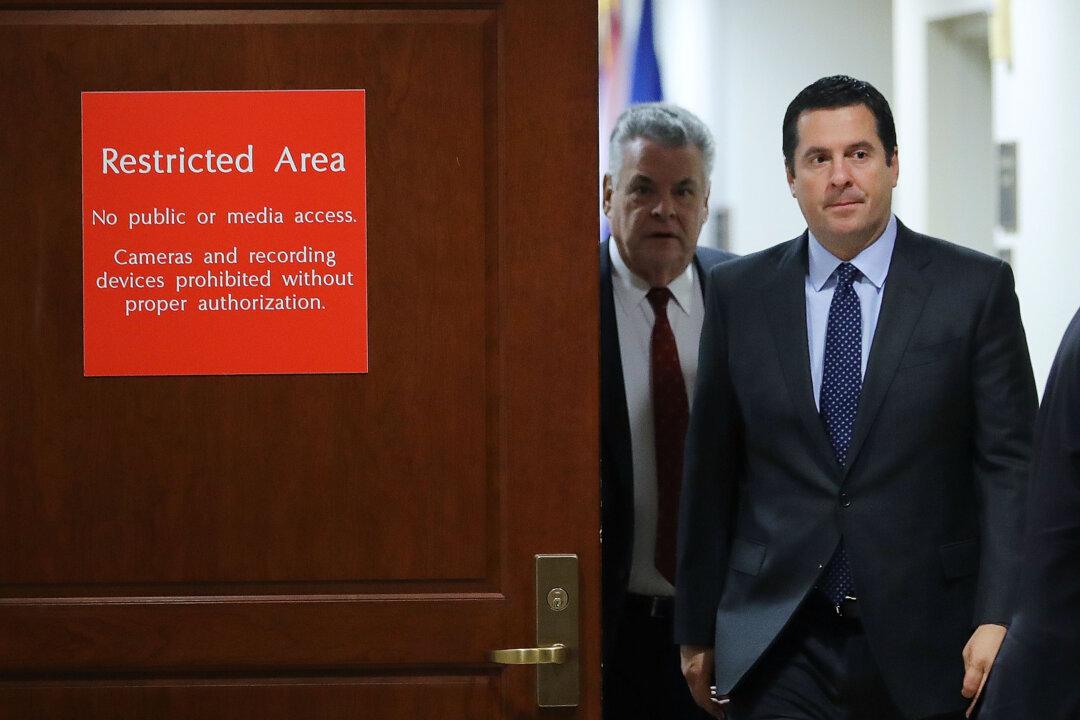Current and former government officials leaked details identifying a spy in President Donald Trump’s 2016 campaign even though the Justice Department warned that revealing the spy’s identity would endanger his or her life and compromise national security.

House Intelligence Committee Chairman Devin Nunes (R-CA) (2nd L) and Rep. Peter King (R-NY) leave the committee's secure meeting rooms in the basement of the U.S. Capitol House Visitors Center in Washington, D.C., on Feb. 6, 2018. Chip Somodevilla/Getty Images

Petr Svab
reporter
|Updated:



